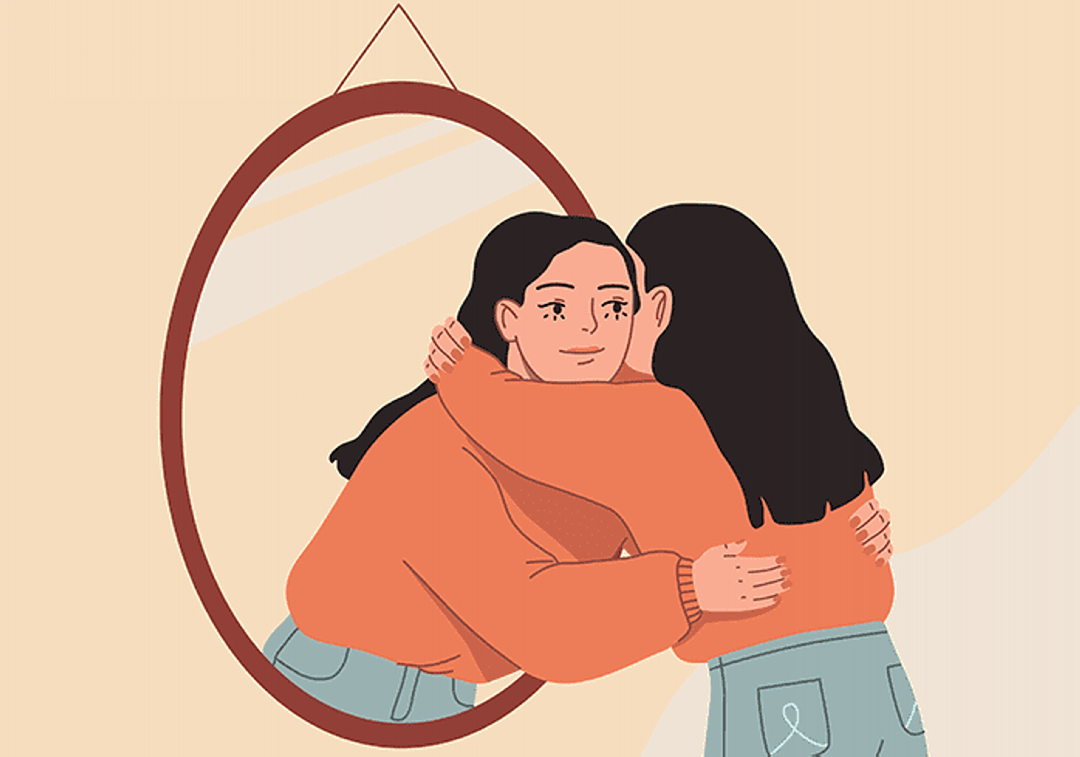Confession: I’m anxious.
In what seems like a former lifetime, I taught psychology school programs and labored as a enterprise marketing consultant, coach and coach. Given my mentoring roles (and my Ph.D. in psychology) it wasn’t unusual for a pupil or coaching participant to drag me apart and admit that they have been affected by anxiousness. The reality is, so was I.
Identified with an anxiousness dysfunction greater than twenty years in the past, I’ve been each the giver and receiver of the “I’m anxious” confession. I perceive what it’s wish to wrestle to seek out the correct phrases, and I understand how crushing it feels to obtain the unsuitable response. Even well-intentioned family members can exacerbate anxiousness with a remark that feels unsympathetic or judgmental.
To keep away from misunderstandings and damage emotions, listed below are 5 useful responses when a cherished one approaches you about their anxiousness.
1. “You aren’t alone.”
Psychological sickness is frequent, and your anxious family members aren’t alone. The truth is, anxiousness grew to become much more prevalent through the pandemic as folks throughout the globe struggled with an unprecedented well being disaster, loneliness and isolation. By reassuring your family members that their struggles are legitimate and reminding them that they aren’t alone, you possibly can assist them hold perspective and really feel supported.
Nevertheless, bear in mind to tread fastidiously on this dialog. “You aren’t alone” doesn’t equate to, “All of us really feel that approach.” There’s a giant distinction between sometimes feeling anxious and being recognized with an anxiousness dysfunction. You don’t wish to be dismissive or reduce your beloved’s struggling.
2. “There isn’t any purpose to really feel ashamed.”
Sadly, anxiousness can spur emotions of disgrace, embarrassment and isolation. Additional aggravating the state of affairs, anxiousness could cause folks to withdraw from relationships and social interactions. You’ll be able to assist by reassuring your beloved that there isn’t a purpose for them to really feel disgrace — that it’s a well being situation and never their fault; that anxiousness has nothing to do with energy or weak spot.
One of the best strategy is to deal with an anxiousness prognosis the identical as you’d a hypertension prognosis: With out judgement. When each your phrases and actions present acceptance, you may make your family members really feel supported and cherished.
3. “It’s okay to not be okay.”
After I really feel anxious, I wish to run, each figuratively and actually. I wish to run away from wherever I’m, and I wish to run from the inner sensations of hysteria. Nevertheless, I began training mindfulness and am studying to take a seat with these feelings extra. A part of that success comes from realizing it’s okay to not really feel okay. There’s a freedom in not “fearing the concern” — in not permitting the anxiousness to be current. This helps me to simply accept that anxiousness is solely part of my life, and it doesn’t have to regulate my life.
To make clear, you shouldn’t inform your anxious family members they want a dose of mindfulness. Whereas trying to be useful, responses like, “Simply loosen up. Possibly it is advisable to take a deep breath,” can have the other impact. Whilst you can assist them, you probably won’t be able to resolve the issue.
It’s essential to your family members to listen to, “It’s okay that you simply really feel anxious. I’m right here with you. There’s no strain so that you can really feel good proper now.” That is totally different from saying, “You’re okay,” which might be extremely invalidating. Somewhat, you’re making it clear that, “It’s okay that you simply’re not okay.” This may help them to really feel safer, supported and validated. It could possibly additionally assist them to really feel secure admitting they don’t seem to be okay.
4. “How can I assist?”
Likelihood is, your family members have a minimum of a number of coping methods that relieve their anxiousness. So, there’s no want to inform them what you suppose they need to do. Nobody needs to be lectured by their cherished one throughout a second of want.
As an alternative, it’s greatest to allow them to let you know what they want. Maybe, like me, they get reduction from shifting. If they should go on a stroll, you possibly can supply to maintain them firm. Or you possibly can supply to observe their youngsters (if relevant) to allow them to stroll alone. Moreover, persons are more likely to simply accept assist when it’s provided than in the event that they must ask for it. The secret is to easily supply.
5. “I assist your choice.” (In the event that they want counseling or treatment.)
Psychological sickness is treatable. Sadly, lower than half of U.S. adults experiencing psychological sickness get remedy. There are a number of causes for this, from lack of insurance coverage to emotions of disgrace. It’s possible you’ll not be capable of present insurance coverage to your family members, however you possibly can actually encourage them to hunt assist.
Persons are extra prone to search assist in the event that they don’t really feel judged. Seemingly, you’d by no means query somebody for going to a heart specialist or doubt their must take blood strain drugs. Likewise, you need to by no means query somebody who wants skilled steering or treatment for a psychological sickness. As a cherished one, your position is to not be a physician, nor an knowledgeable, however reasonably to assist your beloved search the assistance they want.
Finally, in case your family members have an anxiousness dysfunction, the perfect factor you are able to do is present them love and acceptance. You might be open and curious with out judgement. That’s what works after I talk about anxiousness, each because the sender and receiver.
As an anxious mother searching for calm, Melissa Lewis-Duarte, Ph.D., writes about residing with anxiousness and mindfulness-based behavioral change in actual life. Previous to founding Working On Calm, she loved working as a enterprise marketing consultant, school teacher and company coach. At the moment, Melissa lives along with her husband in Scottsdale, Ariz., managing their chaotic life, three younger boys and a barking canine.



